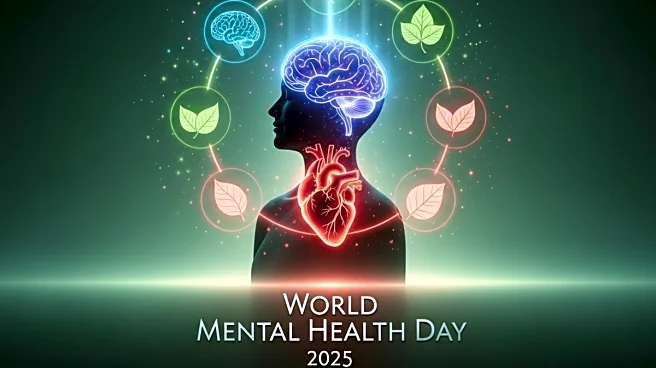World Mental Health Day is aimed at spreading awareness about mental well-being and breaking the stigma surrounding mental health struggles. It is observed on October 10. The day highlights the importance of emotional balance and encourages open conversations so that individuals feel supported rather than isolated. Communities worldwide mark the occasion through campaigns, workshops, discussions and activities designed to promote both prevention and healing.
World Mental Health Day History
The idea of dedicating a day to mental health awareness was first introduced by the World Federation for Mental Health (WFMH), a global body established in 1948 to focus on mental health advocacy. The very first World Mental Health Day was celebrated on October 10, 1992, thanks to the efforts
of Richard C. Hunter, then Deputy Secretary-General of WFMH.
Initially, the day did not have a specific theme, but in 1994, Secretary-General Eugene Brody suggested incorporating annual themes to highlight different aspects of mental well-being. Since then, every year has carried a unique focus, ranging from suicide prevention and workplace wellness to access to mental health care.
World Mental Health Day Significance
The observance of this day carries profound importance because it helps normalise conversations around mental health. Many individuals still hesitate to seek support due to social stigma, myths or fear of judgment.
World Mental Health Day encourages people to recognise that mental health is just as important as physical health. It emphasises compassion, empathy and the need for accessible mental health services so that no one has to struggle in silence.
Signs of Mental Health Struggles To Watch Out For
Awareness begins with recognition. Mental health conditions often show up subtly before escalating into more serious challenges. By understanding the warning signs – emotional, physical and behavioural, loved ones and individuals can intervene earlier and seek help when it’s needed the most.
Emotional Signs
- Persistent Sadness or Hopelessness: Feeling down, numb or hopeless for weeks without relief.
- Irritability and Mood Swings: Unexplained bursts of anger, frustration or rapid emotional changes.
- Excessive Anxiety or Fear: Constant worry or panic that interferes with daily routines.
- Loss of Interest in Activities: Withdrawing from hobbies, friends and activities once enjoyed.
Physical Signs
- Chronic Fatigue and Low Energy: Constant exhaustion even after adequate rest, making daily tasks difficult.
- Disrupted Sleep or Appetite: Trouble falling asleep, oversleeping or noticeable changes in eating habits.
- Unexplained Physical Aches: Headaches, digestive problems or muscle tension without a clear medical reason.
Behavioural Signs
- Declining Work or Academic Performance: Struggling to focus, missing deadlines, or losing productivity.
- Social Withdrawal: Isolating from friends, family and avoiding meaningful interactions.
- Substance Dependency: Turning to alcohol, drugs or smoking as a way to cope.
- Neglecting Daily Responsibilities: Ignoring household chores, skipping personal hygiene or forgetting commitments.
Practical Ways to Support Mental Health
Improving mental health doesn’t always require big changes; small, mindful habits can make a significant difference. Here are simple practices that can help maintain emotional balance and resilience:
- Prioritise Quality Sleep: Restorative sleep is essential for emotional regulation and reducing stress.
- Practice Mindful Breathing: Deep breathing exercises calm the nervous system and reduce anxiety.
- Keep a Gratitude Journal: Writing down positive moments helps shift focus from stress to appreciation.
- Engage in Reflection: Journaling thoughts and emotions provides clarity and emotional release.
- Incorporate Movement: Light walks, stretching, or dancing can release endorphins and lift your mood.
- Limit Screen Time: Reducing digital overload prevents mental fatigue and overstimulation.
- Eat Brain-Boosting Foods: A diet rich in fruits, vegetables and omega-3s supports cognitive health.
- Stay Connected: Meaningful conversations with friends and family foster belonging and reduce loneliness.
- Set Boundaries: Protect your mental energy by saying no to draining commitments.
- Explore Mindfulness and Meditation: Guided practices, including apps like Headspace, can promote calm and focus.


/images/ppid_a911dc6a-image-177089159606325981.webp)
/images/ppid_a911dc6a-image-177089152458421393.webp)
/images/ppid_a911dc6a-image-177089155801556978.webp)







/images/ppid_59c68470-image-17708925279223654.webp)

/images/ppid_59c68470-image-177089257596090286.webp)
